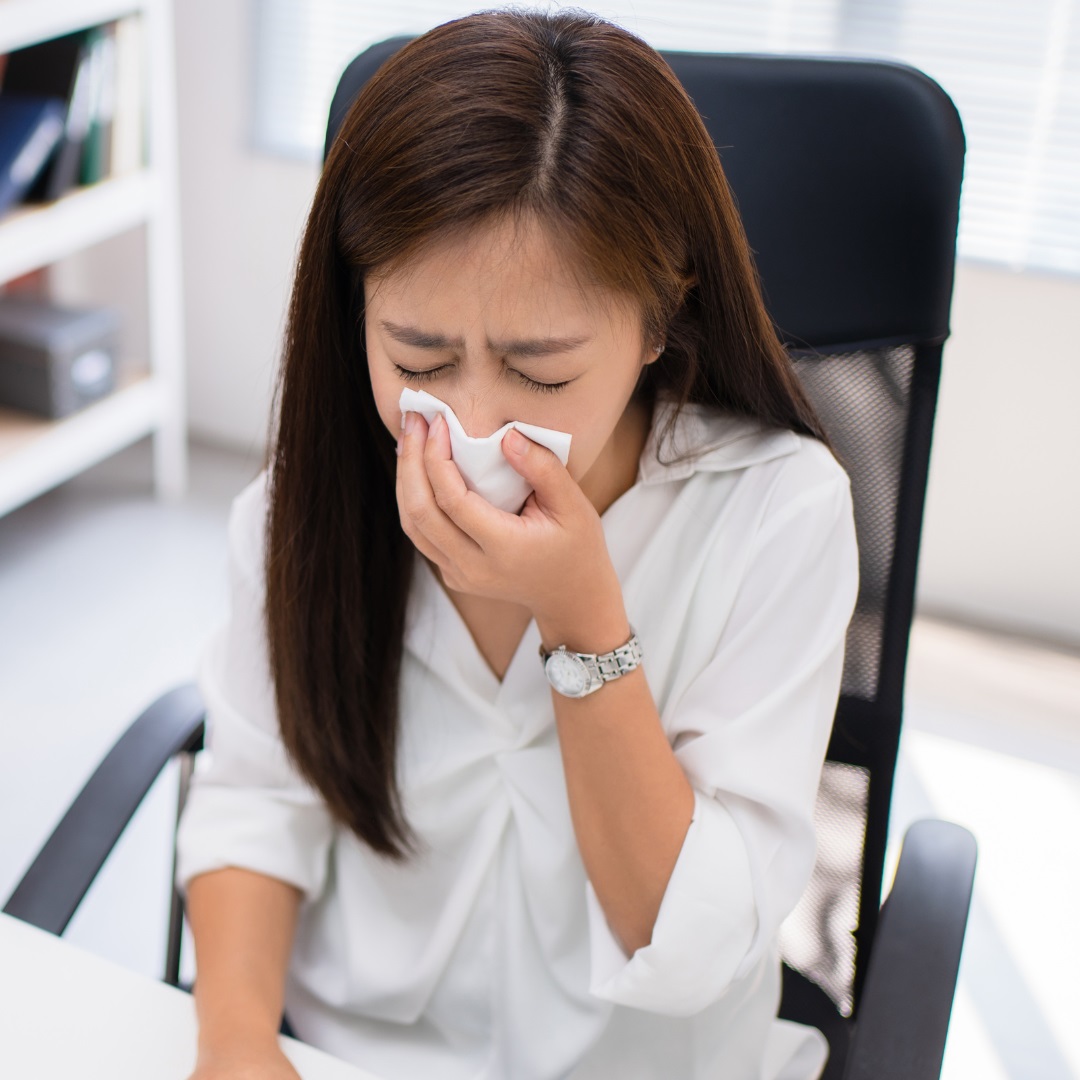Allergic rhinitis, commonly known as hay fever, is a prevalent condition affecting many individuals in Singapore. It has symptoms such as sneezing, nasal congestion, runny nose, and itching of the eyes, nose, and throat.
Expect that there is an allergic reaction to certain substances, known as allergens, which are found in the environment. While there is no cure for allergic rhinitis, there are several strategies you can adopt to manage your symptoms and reduce exposure to allergens, allowing you to lead a more comfortable life in the vibrant city of Singapore.
IDENTIFY AND AVOID COMMON ALLERGENS:
One of the first steps in managing allergic rhinitis is to identify and avoid the allergens that trigger your symptoms. Common allergens in Singapore include pollen, dust mites, pet dander, and mould spores.
Monitor the daily pollen count, especially during high seasons, and try to stay indoors when the count is high. Use air purifiers with HEPA filters to remove allergens from the air in your home, and regularly clean your living space to reduce dust mites and mould growth.
KEEP WINDOWS CLOSED AND USE AIR CONDITIONING:
Singapore’s tropical climate means that open windows can easily let allergens into your home. Keep your windows closed, especially during pollen season, and use air conditioning to keep the air inside your home clean and cool. Regularly clean and maintain your air conditioning units to prevent the buildup of allergens and ensure optimal performance.
USE NASAL IRRIGATION:
Nasal irrigation, also known as nasal rinsing or saline irrigation, can help alleviate nasal congestion and reduce the frequency of symptoms. Use a saline solution or a nasal spray to flush out allergens and irritants from your nasal passages. This simple and natural method can provide relief and improve your overall nasal health.
PRACTISE GOOD HYGIENE:
Maintaining good personal hygiene can also play a significant role in managing allergic rhinitis. Wash your hands regularly, especially after coming into contact with potential allergens, such as pets or outdoor surfaces. Shower before sleeping to remove any allergens that may have accumulated on your skin and hair throughout the day.
MANAGE YOUR STRESS LEVELS:
Stress has been known to exacerbate allergic rhinitis symptoms. Engage in stress-reducing activities such as yoga, meditation, or regular exercise to help keep your symptoms under control. Additionally, getting enough sleep and maintaining a balanced diet can contribute to overall well-being and improve your body’s ability to cope with allergies.
CONSULT AN ALLERGIST OR ENT SPECIALIST:
If your symptoms persist or significantly impact your quality of life, consult an allergist or ear, nose, and throat (ENT) specialist. They can conduct specific allergy tests to identify triggers and provide appropriate treatment options tailored to your needs. Numerous healthcare professionals specialise in sinusitis treatment and allergic rhinitis management in Singapore.
CONSIDER IMMUNOTHERAPY:
Immunotherapy, also known as allergy shots, is a long-term treatment option for allergic rhinitis. It involves regular injections of small allergens to desensitise your immune system. This treatment can help reduce the severity of your symptoms over time and is especially beneficial if you cannot avoid your allergens.
THE BOTTOM LINE
Living with allergic rhinitis in Singapore can be challenging, but with the right strategies and support, you can effectively manage your symptoms and enjoy life to the fullest. By identifying your triggers, avoiding allergens, practising good hygiene, and seeking professional help when needed, you can significantly reduce the impact of allergic rhinitis on your daily life. Take control of your allergies today and take steps towards a healthier, symptom-free future.
Remember that if your symptoms persist or worsen, consult Dr Jenica Yong. They are a healthcare professional for accurate diagnosis and personalised treatment options.

